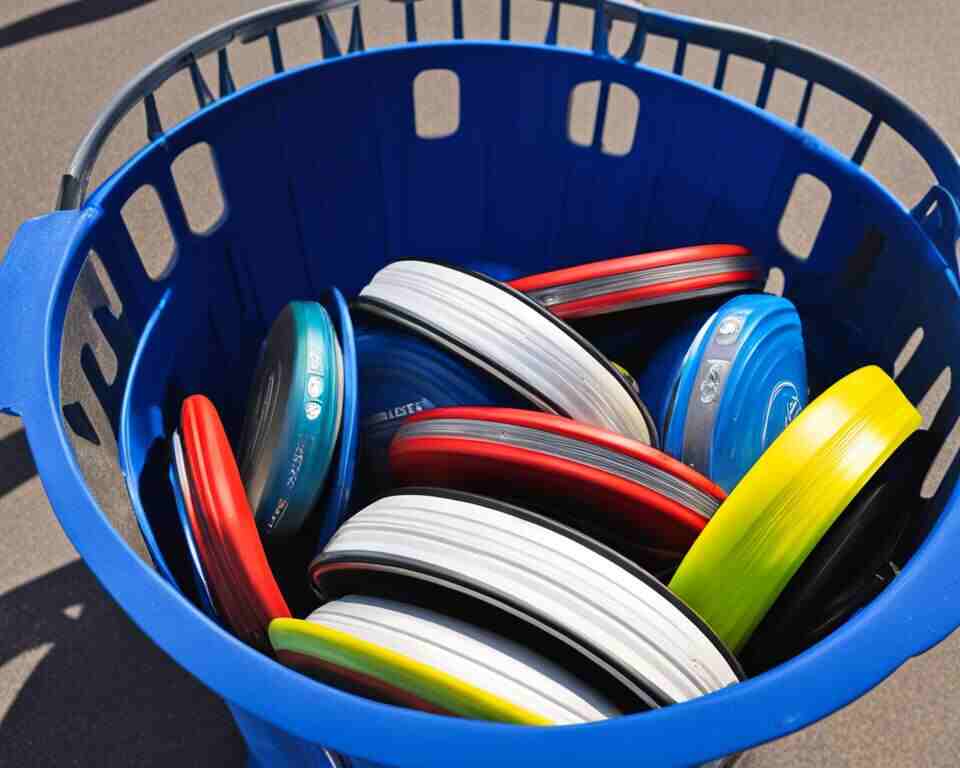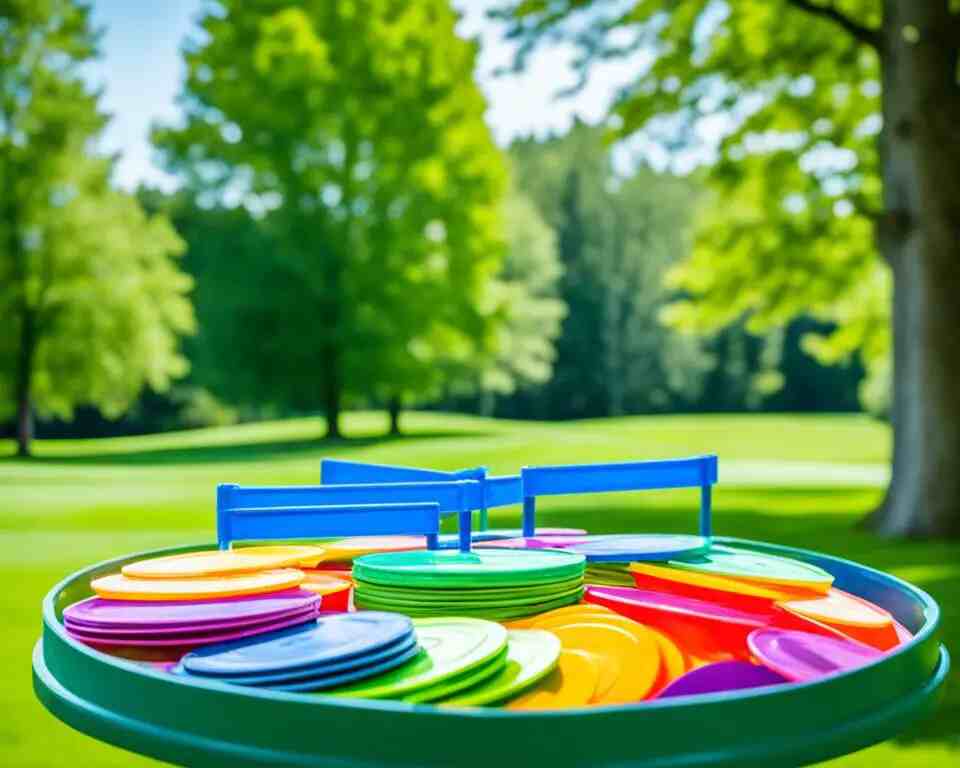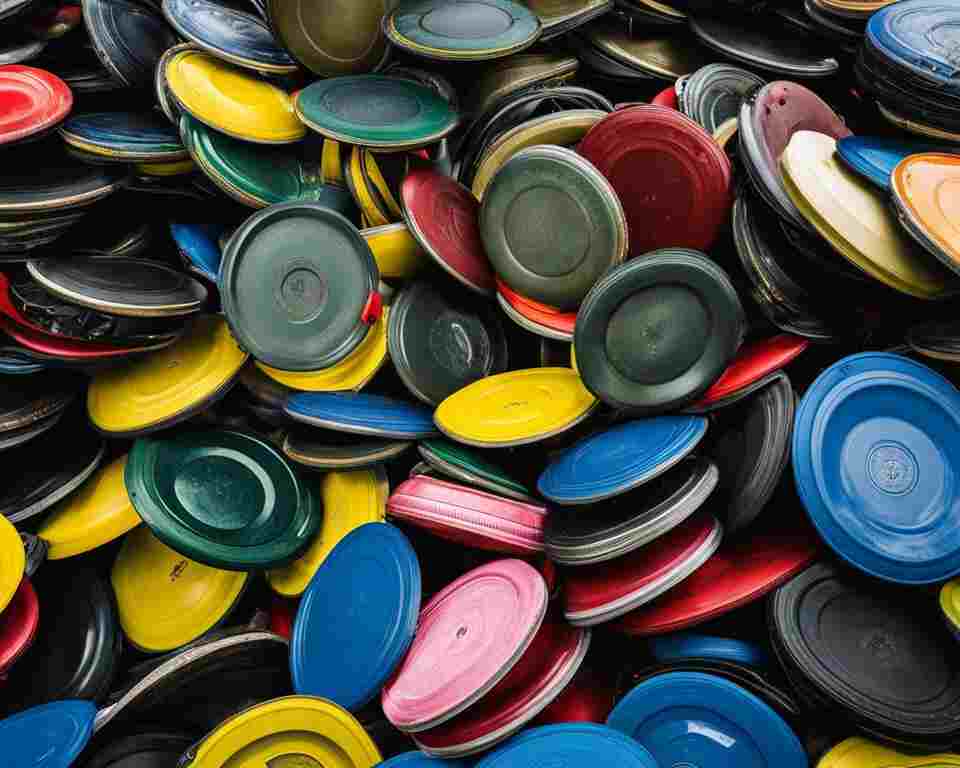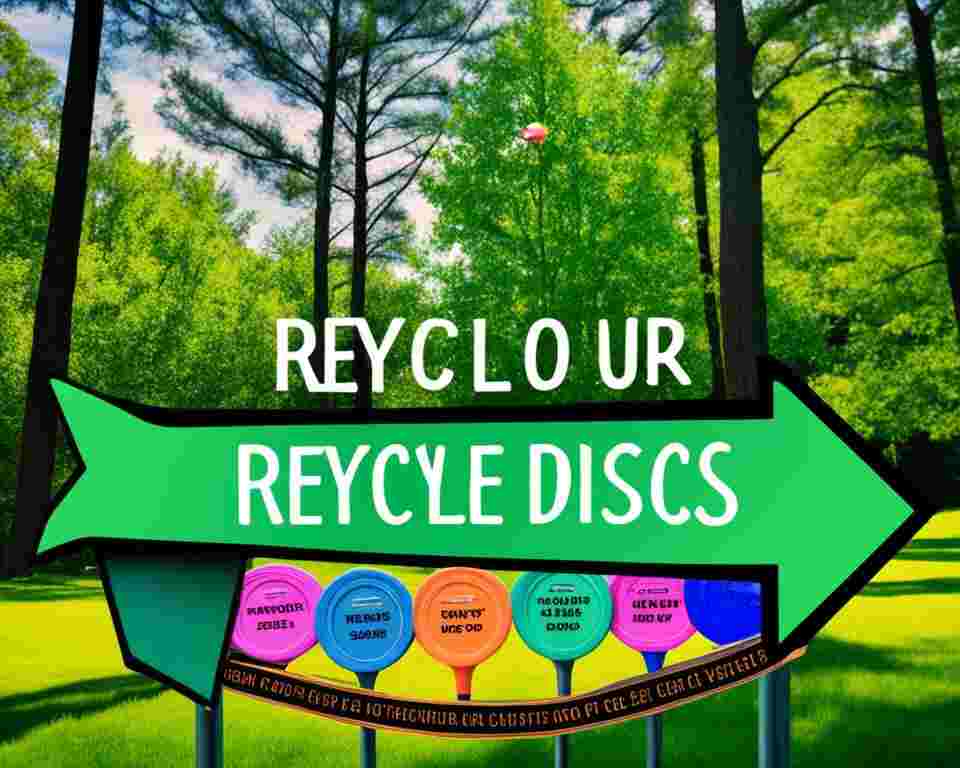Disc golf, a beloved sport with a growing community, often leads enthusiasts to accumulate a collection of discs over time. Ever wondered what to do with old or unwanted discs? Is recycling them for a more sustainable disc golf experience possible? In this article, I’ll explore disc golf disc recycling options and discuss proper disposal methods to ensure environmental sustainability.
Effective waste management is crucial for minimizing our environmental impact. By embracing eco-friendly alternatives, we can enjoy our favorite sport while contributing to the preservation of our playing environment. Let’s delve into disc golf disc recycling and explore how we can make a difference.
Key Takeaways:
- Recycling disc golf discs is possible and crucial for environmental sustainability.
- Proper disc golf disc disposal methods can minimize the impact on the environment.
- Understanding the need for disc golf disc recycling helps contribute to a greener sport.
- Exploring eco-friendly alternatives can provide more sustainable options for disc golf equipment.
- Supporting disc golf disc recycling programs and educating others is essential for a more environmentally conscious approach.

Can You Recycle Disc Golf Discs?
Recycling plastic discs from disc golf is an important step towards reducing waste and conserving resources. While plastic recycling in general can be challenging, disc golf discs can be recycled through specific programs and initiatives.
Understanding the Recycling Process for Disc Golf Discs
When it comes to recycling disc golf discs, it’s essential to understand the materials used in their production. Disc golf discs are typically made of durable and flexible plastics such as polyethylene, polypropylene, or a combination of both. These materials are chosen for their lightweight and durable properties, which are essential for disc flight and performance on the course.
Recycling disc golf discs involves breaking down the plastic materials into small pellets or flakes. These materials can then be melted and remolded to create new products, reducing the demand for virgin plastic production.
However, recycling disc golf discs can present some challenges. Discs may contain metal weights or other non-plastic components that need to be separated before the recycling process. Additionally, variations in plastic types and disc designs can impact the recycling efficiency, requiring specialized programs that can handle these variations.
Despite these challenges, disc golf disc recycling options do exist. Many disc manufacturers have implemented disc recycling programs, where players can return their old discs to be recycled or repurposed for future use. These programs not only provide a sustainable disposal solution but also contribute to the circular economy by incorporating recycled materials into new disc production.
By participating in disc golf disc recycling programs or seeking out eco-friendly disc golf equipment options, players can support the sustainability of the sport and minimize their environmental impact. Let’s explore the benefits and initiatives that promote a more eco-friendly approach to disc golf disc disposal in the following sections.

Understanding the Need for Disc Golf Disc Recycling
Sizing Up the Environmental Impact
Disc golf discs have a significant environmental impact throughout their lifecycle. From the production of these plastic discs to their ultimate disposal, various processes contribute to carbon emissions and waste generation. By understanding the environmental consequences, we can take steps towards more sustainable disc golf disc recycling.
The Growth of Disc Golf and Plastic Demand
The sport of disc golf has experienced tremendous growth in recent years, leading to an increased demand for plastic discs. As more people embrace this activity, the production of new discs intensifies, resulting in greater environmental strain. It is vital to address this surge in plastic demand and explore sustainable alternatives to ensure the long-term viability of the sport.
Current Disc Golf Disc Waste Management Practices
Disc golf disc waste management practices vary, and improper disposal can have detrimental effects on the environment. Many discs end up in landfills, where they take decades to decompose, releasing harmful pollutants in the process. It is crucial to evaluate the current waste management practices in the disc golf industry and identify opportunities for improvement.

| Environmental Impact | Plastic Demand | Waste Management Practices |
|---|---|---|
| Carbon emissions Waste generation | Growing demand for plastic discs in disc golf | Discs ending up in landfills Potential pollutants from improper disposal |
Conclusion
In conclusion, disc golf disc recycling is an essential practice for the sustainability of both the sport and the environment. By embracing sustainable practices in disc golf, such as recycling and proper disposal methods, we can minimize the environmental impact caused by disc production and waste generation.
To promote a greener approach to disc golf, it is crucial to explore eco-friendly alternatives for disc golf equipment. Bioplastics and recycled materials offer sustainable options that can help reduce the reliance on virgin plastics.
To ensure the success of disc golf disc recycling, it is important to support existing disc golf disc recycling programs and follow recycling guidelines. By doing so, we can increase the effectiveness of these programs and ensure that discarded disc golf discs are properly recycled.
Lastly, educating disc golfers on the importance of eco-friendly practices is key. By raising awareness about the environmental impact of disc golf disc disposal and promoting the benefits of recycling, we can inspire a culture of sustainability within the disc golf community. Together, we can make a positive impact on the environment and preserve our favorite sport for future generations.


